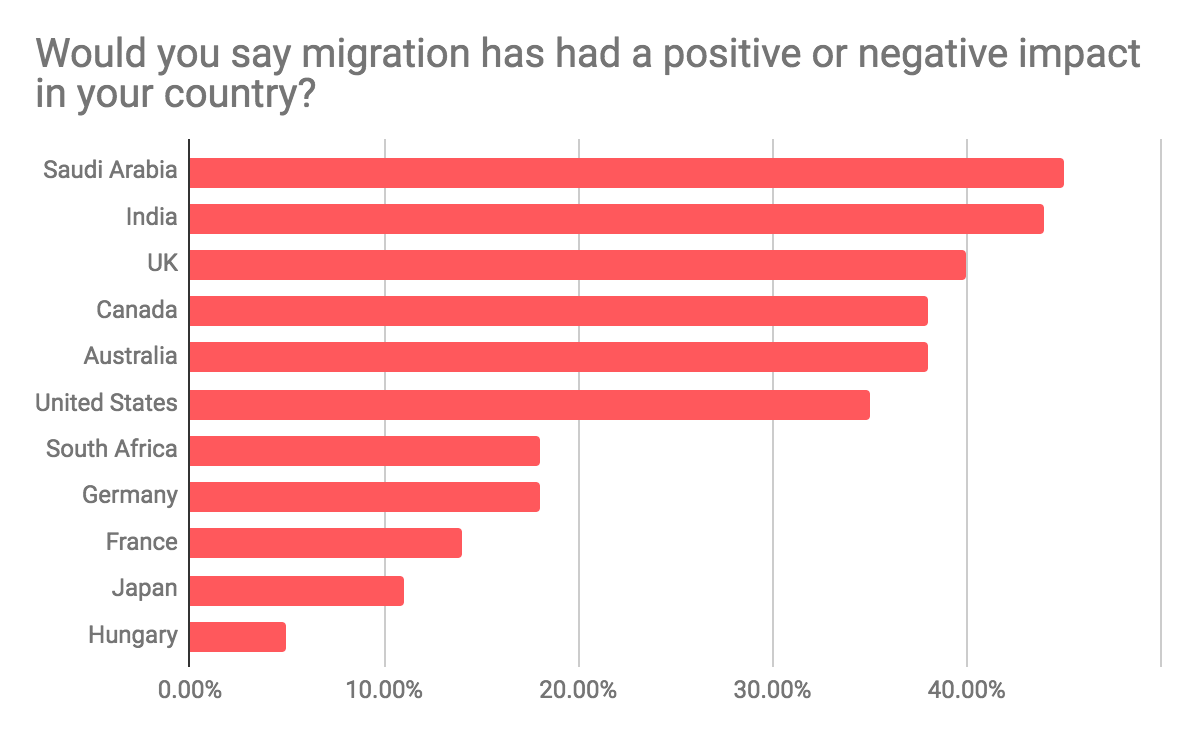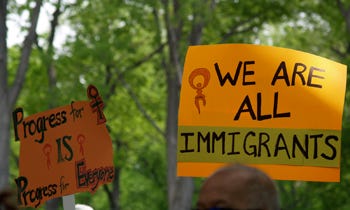[First published in 2018]
We were fortunate to be born in South-West London, to a middle-class family, in a progressive, economically stable state that birthed the NHS, the rule of law (or at least popularised the phrase), and the Beatles.
But, what if we weren’t?
For starters, the support we received from the NHS was instantaneous. We didn’t have an easy birth and were instantly reliant on the support that the NHS gave us, so the quick answer is: there would be no us. Overlooking that minor detail, what if wewere born somewhere else. Somewhere that didn’t have modern roads, state supported education, maternity and paternity leave, equality before the law, job opportunities, democracy? And, what if this somewhere was unlikely to change in the short to medium term?
This is the question that many, many people around the world face; with many more faced with the lifestyle questions of: is there anywhere else on the planet I may rather live, study, work or love?
When faced with such questions the options are binary, in the immortal words of the the Clash:
“Should I stay, or should I go.”
This short note will consider how migration benefits society, before analysing migration in the eyes of financial services and finishing with a lofty call for arms.
So, how do migrants benefit society? We’ll start with the economic contributions:
- In the UK migrants have added £175bn to the GDP since 1990, in Germany this figure stands at €155bn¹
- A 1% increase in the adult migrant population in the UK leads to a 2% increase in GDP per capita and productivity ²
- In 2015, immigrants accounted for 45 percent of the U.S. workforce with a science or engineering doctorate
- 40 percent of global patent applications are filed by immigrants as inventors or co-inventors and immigrants are three times more likely than natives to file patents.³
Migrants outperform economically on a net basis — driving huge GDP contributions.
It doesn’t take long for the logic to make sense. Having workers educated by a different country is likely to lead to net gain, plus these workers have answered Clash’s immortal question with a resounding “Yes” displaying courage and a drive to succeed.
GDP growth, especially on a net basis, is incredibly important — with the studies consistently suggesting GDP growth (up to a point (see Easterlin Paradox for more)) is positively correlated with happiness.⁴ This growth demands working-age adults, and Western economies aren’t growing their population organically.⁵ Put simply: if migrants weren’t here to do the jobs, the jobs wouldn’t be done! The likelihood of entering something that looks like Japan’s lost decade is greatly enhanced if a populace isn’t growing, and is instead ageing — with the implications of this being a deficit in the tax revenues (note, Japan views of migration, in schedule 1).
I would argue that the characteristics shown by migrants perfectly positions them to be the innovators of the world, the humans most likely to challenge and push, most likely to strive for knowledge — and the statistics points towards this being the case.
But, to limit the impact that migrants have to just economic prosperity would be an injustice; would we have had Greek Philosophy without Thales studying in Egypt? Modern physics without Einstein’s move to the US? Google without Sergey Brin? In fact, in the US migrants have made up more than three times as many Nobel Laureates, National Academy of Science members, and Academy Award directors vs. their share of the population³.
These are but a few examples where migration served as the gateway to exponential knowledge growth, making it hard to overstate how crucial migration has been to our species’ development.
Given the evidence that migration is a force for good you would think the wider populace would view it positively; however, in most countries migrants are still vilified:

Migrants and Financial Services
The first time we were exposed to the scepticism in which the insurance industry holds migrant people was in a meeting with an experienced insurance director who declared:
“Everyone knows migrants are just bad risks, a business focused on them has no chance”
In the preceding statement, you can see both the dehumanising nature of finance (as people are reduced to nothing more than ‘risks’) and the opportunity that exists within industries steeped in antiquated anti-biases.
Currently, car insurance quotes are 51% more expensive if you weren’t born in the UK⁸ leading to an estimated annual deficit of £400m in migrant households.
We’re certain that the community could spend £400m in more productive ways than lining the pockets of the insurance industry. Morally, we find it reprehensible that moving country can be so economically crippling.
Further research indicates that Insurance isn’t the only financial service that fails to provide migrants with fairly priced financial products:
- Credit card APRs that specialise in this subset are often 39.9% ⁹
- Getting a mortgage is recognised as much harder and requires specialist help ¹⁰
- Loan APRs for these individuals are much, much higher
The truth of the matter is, providing fairly priced financial products for migrants is harder than providing products for Joe Public, but this shouldn’t mean that it shouldn’t be accomplished — and by embracing technology we believe it can be.
Unfortunately, so often, technology has often worked for the masses, but to the economic detriment of underserved communitieswho are demonised by the quick-fire nature of a system built upon the intricacies of credit scoring, ID databases and proof of address — all of which reward movement stagnation!!!!!
Fixing access to financial services will work to fix income inequality — simple. It won’t be enough on it’s own but it will be a contributor. This is in our collective interest, because after GDP growth has provided all the happiness it can, the next big driver of happiness is income equality.⁶
It’s true, fixing this issue makes whole countries happy.
A final word,
Ever more existential threats present themselves as we advance technology and consumption: AI, global warming, nuclear warfare, molecular nanotechnological weapons are all global issues that need global responses, and yet nations continuously think about dealing with local issues via national responses.
To fulfil humanity’s full potential, and to ensure our continued survival more collaboration is needed from people of all places, and races. Hopefully, we can contribute in our own very small way to reduce the chances of global calamity by helping people move around whether that be for work, love, study or play.
To put icing on the cake, migrants feel 9% happier and 7% less negative following their move to a foreign country,⁶ in-spite of the huge political and social pressure for migrants to assimilate into the local culture as quickly as possible.
At Marshmallow, we’re using technology to increase financial inclusion for 250 million people, and increase global movement. Check out our open roles here if you are interested in solving this problem.

[2] Jaumotte et al. (2016)
[3] MGI and Goldin (2012)
[4] https://hbr.org/2016/04/when-economic-growth-doesnt-make-countries-happier
[6] https://hbr.org/2016/01/income-inequality-makes-whole-countries-less-happy
[6] https://www.migrationpolicy.org/article/does-migration-increase-happiness-it-depends
[7]ISPOS, September 2017, “Global Views on Immigration and the Refugee Crisis”
[8] Based on privately owned data sets
[9] https://www.vanquis.co.uk/understanding-credit/financial-problems/overseas-uk-credit-rating
[10] https://www.mortgageguideuk.co.uk/mortgages-for-foreigners/
[11] https://hbr.org/2016/01/income-inequality-makes-whole-countries-less-happy